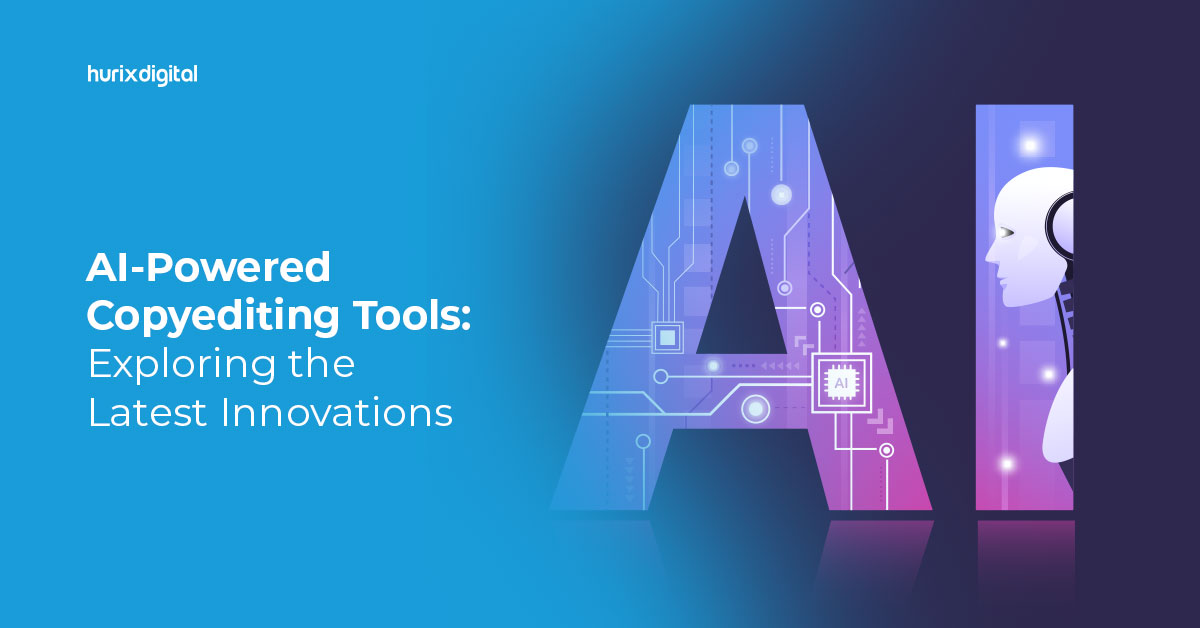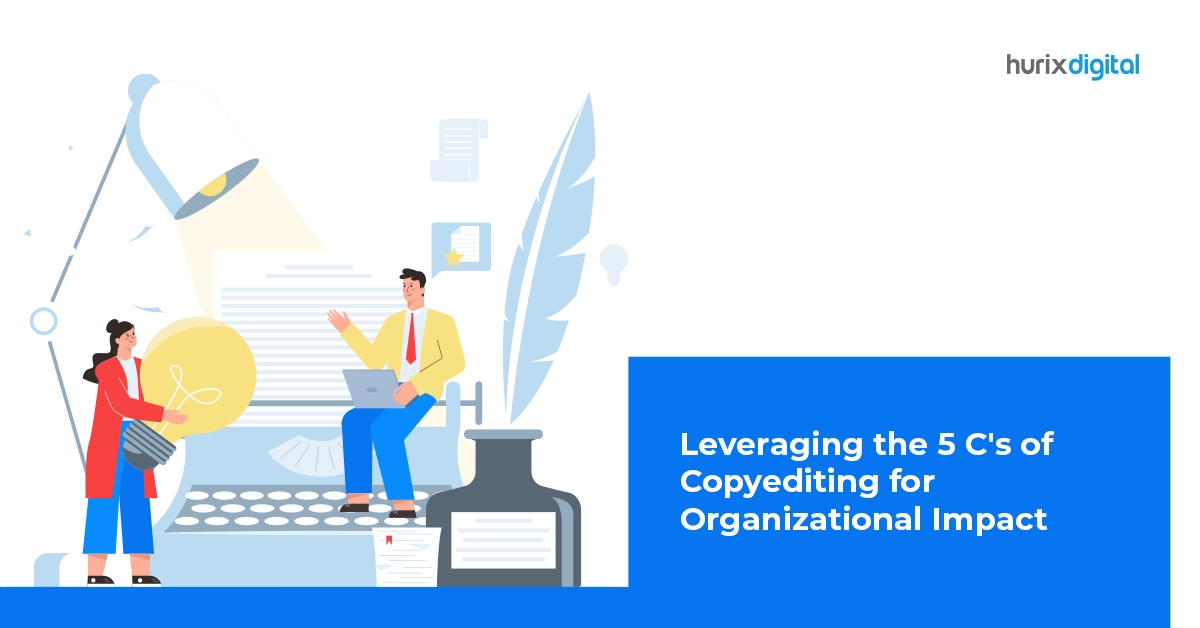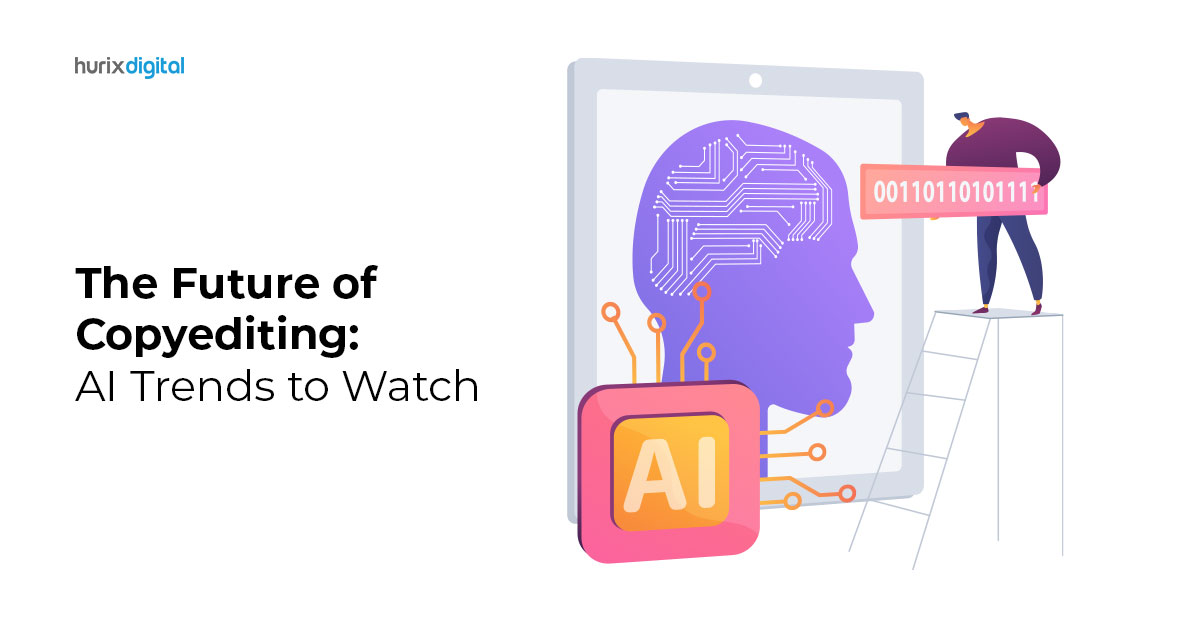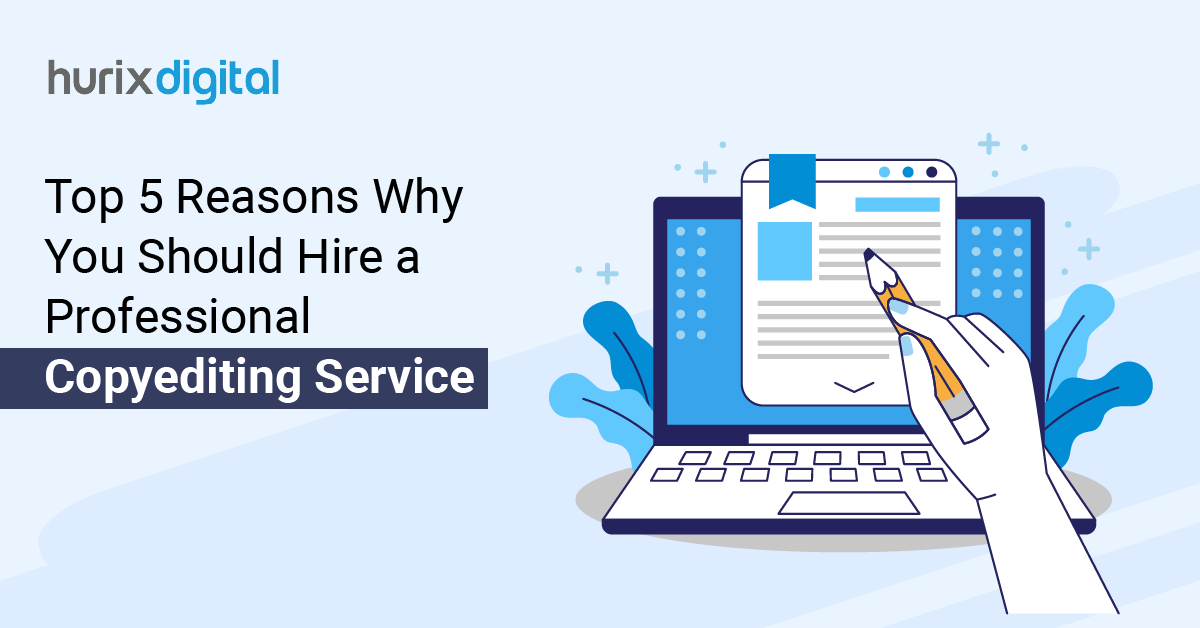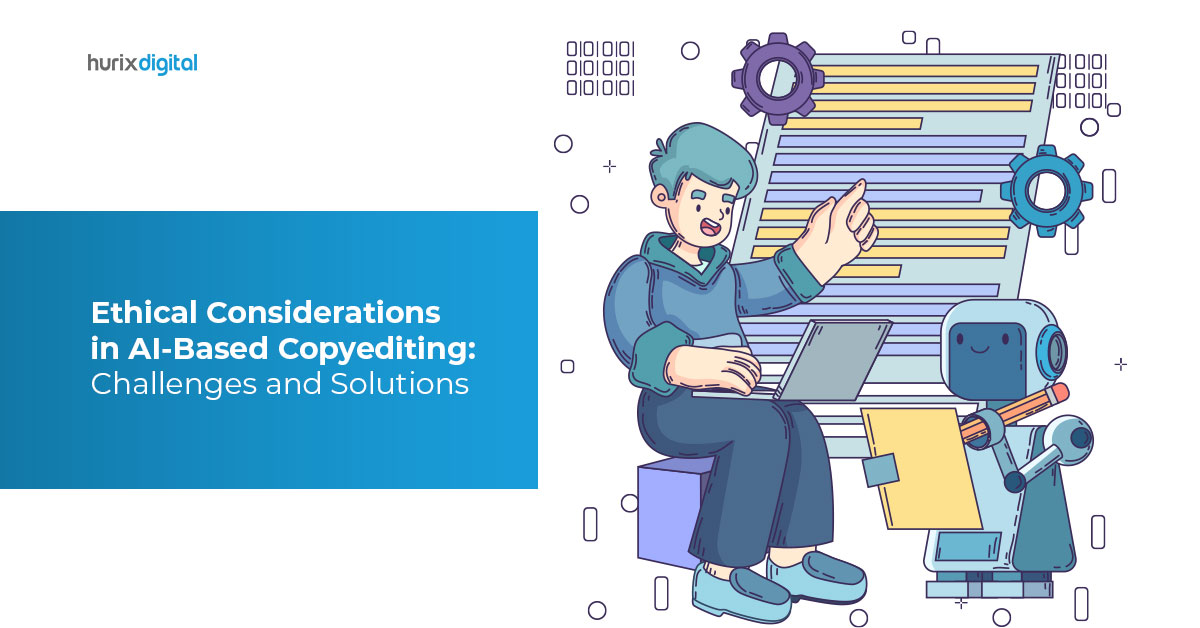
Ethical Considerations in AI-Based Copyediting: Challenges and Solutions
Summary
Explore the ethical challenges of AI-based copyediting, including concerns about bias, privacy, and accuracy, and discover solutions to address these issues responsibly.
Artificial Intelligence is taking over every industry and will continue to do so, with the AI market expected to reach a value of $407 billion by 2027.
So, it is no surprise that AI has sunk its fingers into the copyediting industry and has started automating editing tasks efficiently. While this act is slowly becoming a boon for the publishing industry, AI-based copyediting has problems. It poses some serious concerns – especially that of the ethical nature.
To understand the concerns about AI and copyediting ethics and the probable solutions, you need to be clear with the basics. So, let’s delve into them first!
Table of Contents:
- What is Copyediting?
- Why is Copyediting Important?
- Ethical Challenges in AI-Based Copyediting
- Solutions for Ethical Challenges
- The End Note
What is Copyediting?
Copyediting is a process that takes place once the draft of a written document – be it a book, journal paper, article, or any other piece of writing – is complete. The process involves editing the draft to be grammatically correct, factually accurate, and easy to understand.
A copyeditor is usually the one who carries out the process of copyediting. However, with technological advancements, the responsibility is slowly shifting to AI-based copyediting tools to perform functions like:
- Correct spelling and other grammatical errors like punctuation errors
- Improve text coherence and readability
- Fact-check the information mentioned in the text
- Format the chapter headings, sub-headings, paragraphs, etc., properly
- Adhere to the rules of specific style guides
- Ensure that the text is not defamatory
- Ensure consistency in tone and style
- Provide constructive criticism
Why is Copyediting Important?
Copyediting is an indispensable process, especially if you want your publication in the market. Good editing brings a logical flow to your content and polishes your draft for all errors so you can send it to a publisher.
Nowadays, automated copyediting helps produce a refined draft and significantly raises your odds of selection by the publisher, thus expediting your journey to becoming a published author.
Ethical Challenges in AI Copyediting
Ever since the use of AI in copyediting, several ethical concerns and challenges have been raised, such as the following:
1. Promotion of Biases
AI algorithms take information from a large amount of preset training data. If this training data contains biases, the results produced by AI tools will be biased. Thus, when copyediting, AI tools can make changes in the language that are discriminatory to a specific section of the population. In addition, they may not catch onto the discipline-specific nuances in a non-fiction book, thus leading to mistakes and misrepresentations of the information.
2. Breach of Privacy
To copyedit, AI tools get access to sensitive or personal information. Since AI tools process large volumes of content at a time, they can unintentionally reveal or leak confidential information from user data, thus leading to a breach of privacy.
3. Difficulty in Fact-Checking
Fact-checking is an important part of copyediting, ensuring that only genuine and accurate information is included in the draft and published.
AI tools often have difficulty determining whether a statistic is true or accurate. Thus, they can lead to the publication of inaccurate information.
4. Lack of Transparency and Accountability
Whenever AI-powered copyediting tools work on a draft, they don’t provide explanations or reasoning behind their editing decisions, causing an utter lack of transparency and explainability. The latter makes it difficult to determine who is liable for spreading misinformation or erroneous facts – the author or the AI-powered editing tool – thus creating a lack of accountability.
5. Copyright Infringement
Copyediting requires changing parts of sentences and words to bring consistency to the tone and improve the readability of the content. When AI tools do this, they may use portions of sentences from external sources without giving them credit. As a result, AI tools can end up using copyrighted content without permission from the author, thus resulting in copyright infringement.
6. Widespread Job Loss
AI tools automate repetitive manual tasks, bring workflow efficiency, save time, and reduce costs. It is predicted that AI will replace 16% of the jobs in the US by 2025.
Since AI-based copyediting tools can edit copies of drafts more quickly and efficiently than human copyeditors, a huge risk of AI-driven tools replacing their jobs exists.
Also Read: 10 Advantages of Investing in Professional Copy Editing Services
Solutions for Ethical Challenges
Now that you know about the ethical concerns surrounding artificial intelligence and copyediting, let’s discover their probable solutions.
1. Inclusive Data and Regular Auditing
To ensure that AI-based copyediting is free from bias, the training data used by AI tools must be representative of the population. Taking data from different cultural, ethnic, and linguistic groups anonymously can create inclusive training data for AI tools to work with.
To further mitigate biases, conducting regular audits of the performance of AI editing tools is essential. This will help you know if the information is being handled sensitively – and if not, where improvement needs to occur.
2. Data Encryption and Transparency
AI editing tools should come with strict measures for data encryption, thus ensuring that user data remains protected, confidential, and accessible only to trusted personnel.
In addition, AI-based copyediting tools should indicate the areas they have edited, along with an explanation. This will aid in distinguishing AI content from human-generated content and enable the author to take responsibility for the document’s final draft and the published version.
3. Human Intervention
To get the best copyediting results – human oversight and intervention are paramount. AI-powered editing tools should be seen and act as assistants rather than complete job overtakers. With the collaboration of AI tools and human copyeditors, the best decisions can be made to ensure that the language of discipline-specific texts is nuanced and sensitive, tone and style are consistent, accurate information is used, and proper formatting is done.
The End Note
There are many ethical concerns surrounding AI-based copyediting. However, human oversight and AI tools can take care of them. Considering this, Hurix Digital is a great place to start if you are considering outsourcing copyediting services.
Hurix Digital provides customized copyediting services to ensure that your draft is grammatically correct, has a consistent flow and style, and is complete about the context. Equipped with skilled copyeditors and an AI tool, Hurix performs copyedits and AI-powered proofreading to ensure your copy is in the best shape before sending it to publishers.
To know more about copyediting services, get in touch with Hurix Digital.

Vice President – Digital Content Transformation. He is PMP, CSM, and CPACC certified and has 20+ years of experience in Project Management, Delivery Management, and managing the Offshore Development Centre (ODC).
